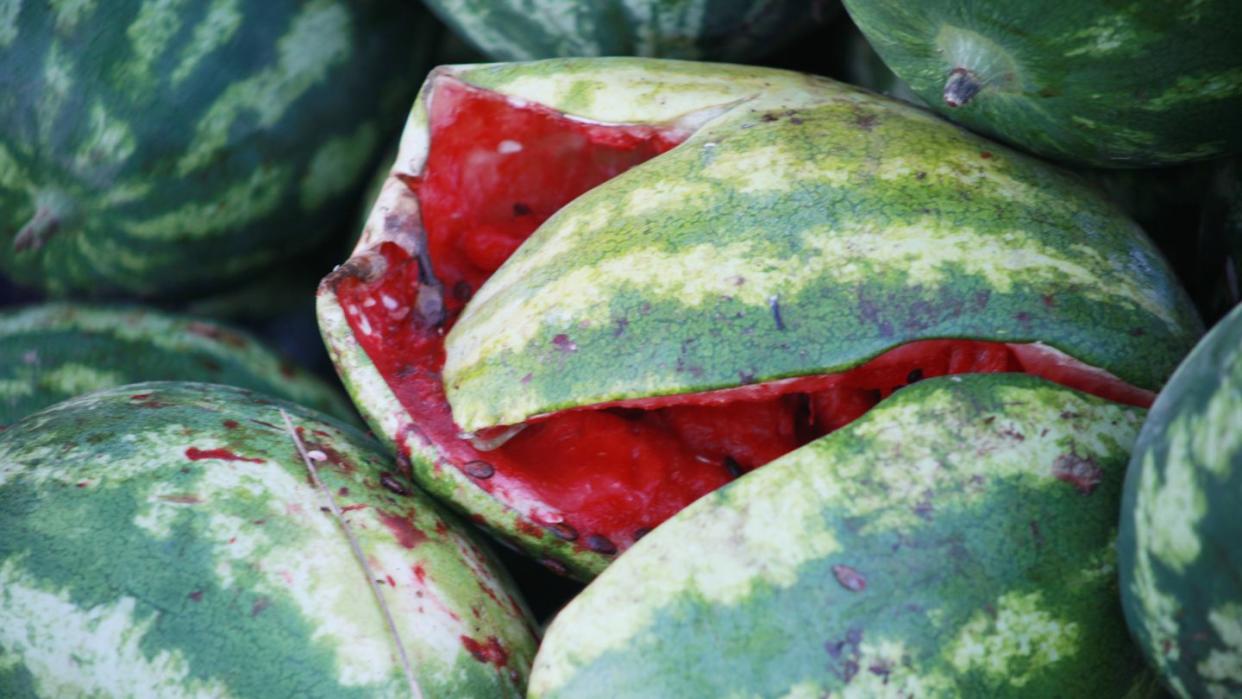Beware: Watermelons Can Literally Explode If You're Not Careful

If we had to pick a favorite summer fruit, watermelon would easily take the top spot. There’s truly nothing like eating a slice of juicy watermelon at a picnic, on the beach, or at a backyard barbecue.
But if we’re being honest, it’s kind of an inconvenient fruit. You need to look for several indicators to make sure you’re buying the ripest, sweetest one. You have to haul the heavy and unwieldy melon home from the grocery store. You have to wrangle your knife through the round melon while avoiding an accidental injury.
And just when you thought that eating watermelon was complicated enough, there’s yet another thing to watch out for: potential explosions.
That’s right, if watermelons are past their prime, they run the risk of foaming, cracking, and even exploding. A melon that otherwise looks normal may be hiding some funky, stinky, and potentially dangerous material.
This phenomenon is a result of fermentation, when the naturally occurring bacteria in the fruit feeds on sugar and produces carbon dioxide. Fermentation isn't necessarily a bad thing; in fact, it's what gives beer, pickles, hot sauce, and even sourdough their iconic flavors.
But when it comes to unregulated and inadvertent fermentation in fruit, it's not a good thing. Your food is essentially rotting. Not only does it taste gross but it may also introduce harmful bacteria if consumed. The process is exacerbated by warm weather, and with the record-breaking temperatures we’ve had this summer, your watermelon is especially susceptible to exploding.
The danger comes when the carbon dioxide build-up within the watermelon creates a highly pressurized environment, not unlike a shaken bottle of soda. The fermented juice needs to find a way to escape. Often, it will form a small crack in the watermelon rind and the pressure can slowly release as the juice oozes out as a carbonated foam.
But if the pressure becomes strong enough, your watermelon may run the risk of exploding. Worst case scenario, you might get hit with some shrapnel. And your kitchen will be covered in stinky, funky watermelon goo.
So how do you avoid it? The best way is to keep your watermelon in the fridge from the get go. While it won’t stop the fermentation process entirely, the colder temperature will slow it down significantly. And if you see a melon that’s foaming, you’ll want to carefully throw it away or compost it to avoid any explosions.
You Might Also Like

